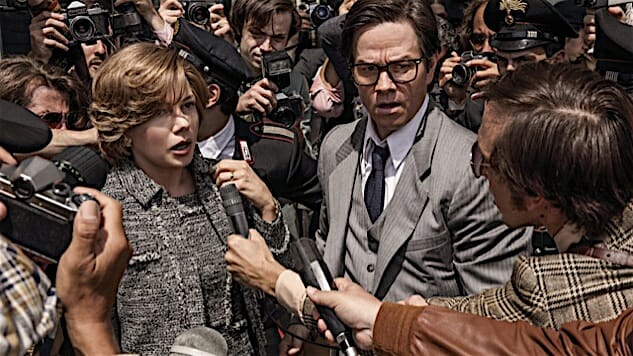All the Money in the World

1. There is no more helpless feeling as a writer than when something you’ve written accidentally gets deleted somehow. Whether it’s a technological mishap, a corrupted file or just plain absentmindedness, to have gone through the trouble of constructing an entire piece—to have created something where before there was nothing—only to have it vanish before it’s unleashed upon the world is as excruciating as anything in this stupid business. But losing the piece is not actually the worst part of it. The worst part is reconstructing it. The worst part is trying to conjure back up what you wrote before, to produce some sort of simulacrum of the lost work. You know it’s not the same, that it’s not as good as it was before, that you can’t recreate the kismet of the first time, that you’ve now wasted your time twice. By the end, you wish you would have never started the thing in the first place.
2. It is impossible to say, if I hadn’t known that Christopher Plummer had been cast at J. Paul Getty in All the Money in the World after the film was already completed because of the sexual misconduct allegations against Kevin Spacey, whether watching the film would fill me, in pretty much every frame involving Plummer, with that same familiar sense of dread, remembering the pain of having to reconstruct something that was lost. But I cannot lie to you: It did. Plummer famously only had nine days to shoot his scenes, and, crucially, almost no time to prepare, to dig into what makes this key character, the most fascinating character in the film, tick. Plummer has said working in the theater helped fortify him for such a strange experience, and the theater training shows: The 88-year-old actor hits all his marks and lands on all the right emotional beats. But he still feels like he’s in an entirely different movie than the rest of his cast, even when they are in scenes together (especially when they are in scenes together). His scenes feel different: They feel, well, rushed. Is it possible that I only feel that way because I know about the offscreen turmoil? Perhaps. But I doubt it. You respect that director Ridley Scott and Plummer and the rest of the cast were able to cobble all this together, but it doesn’t make it feel any less strange.
3. One of the reasons Plummer’s bailout casting stands out so much is how integral he is to the film: His character is the reason it exists. His J. Paul Getty is the richest man on the planet—the richest man ever to live on the planet, he never fails to remind everyone around him—but refuses to spend any of it, living a miserable, miserly life of solitude on his various estates. In the film’s opening scene, his teenage grandson Paul (Charlie Plummer, no relation) is bumming around Italy when he is abducted by kidnappers, who, knowing his grandfather’s wealth, demand $17 million in ransom. Paul’s mother Gail (Michelle Williams) has been long estranged from her ex-husband, Getty’s son who has fallen into drug addiction, and wanted nothing in the divorce but custody of their children. She learns quickly that her father-in-law not only won’t negotiate with the kidnappers; he won’t pay them a dime. He instead dispatches the head of his security team, a former CIA agent named Fletcher Chase (Mark Wahlberg, who I guarantee you has used the name “Fletcher Chase” as an alias while traveling), to try to free Paul “as inexpensively as possible.” So we crosscut back and forth between Fletcher and Gail trying to figure out how to get Paul back, Paul being shuttled around various makeshift Italian prisons and Grandpa, in one of his castles, constantly staring at stock tickers and relenting no quarter.
-

-

-

-

-

-

-

-

-

-

-

-

-

-

-

-

-

-

-

-

-

-

-

-

-

-

-

-

-

-

-

-

-

-

-

-

-

-

-

-








































